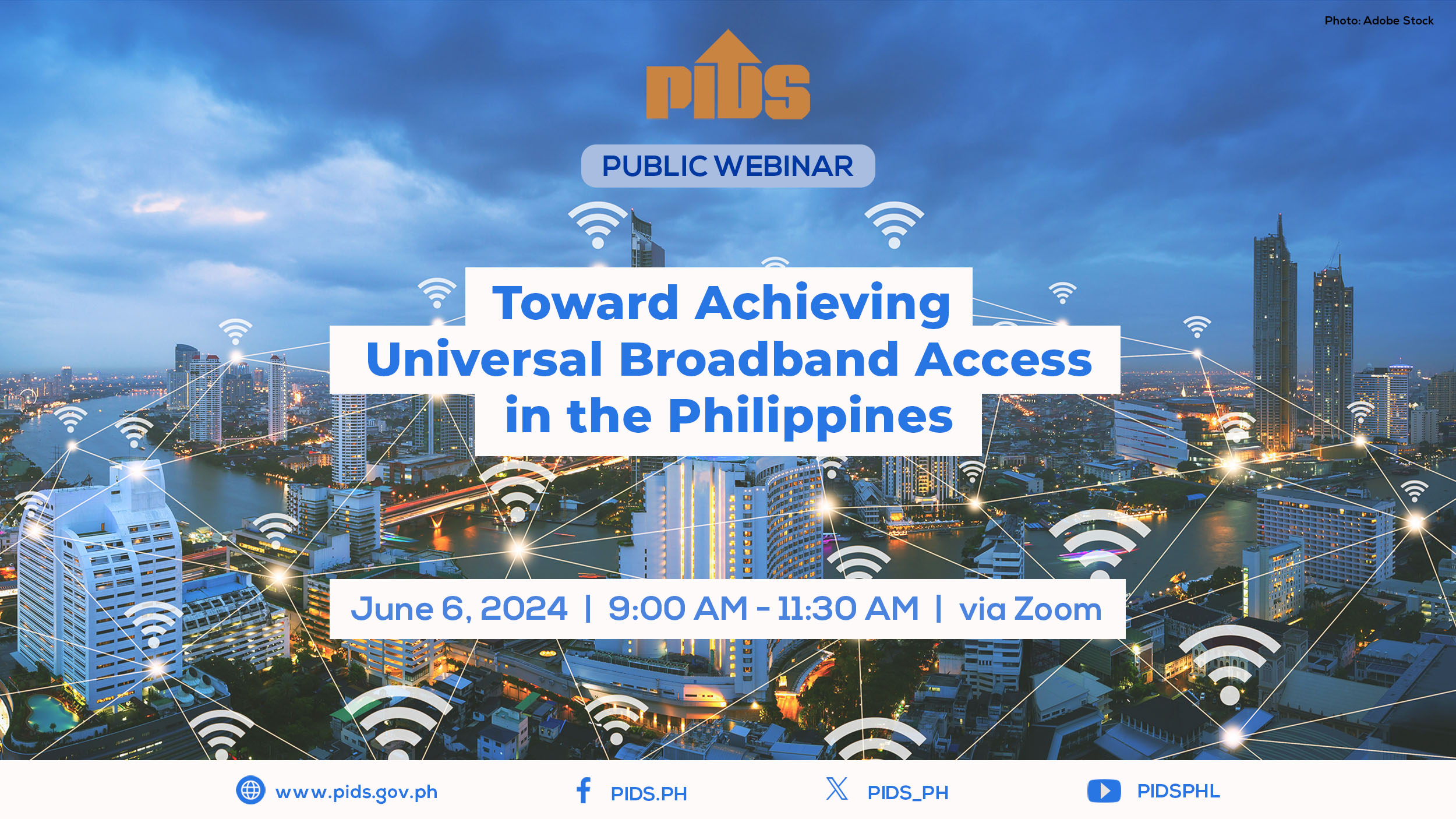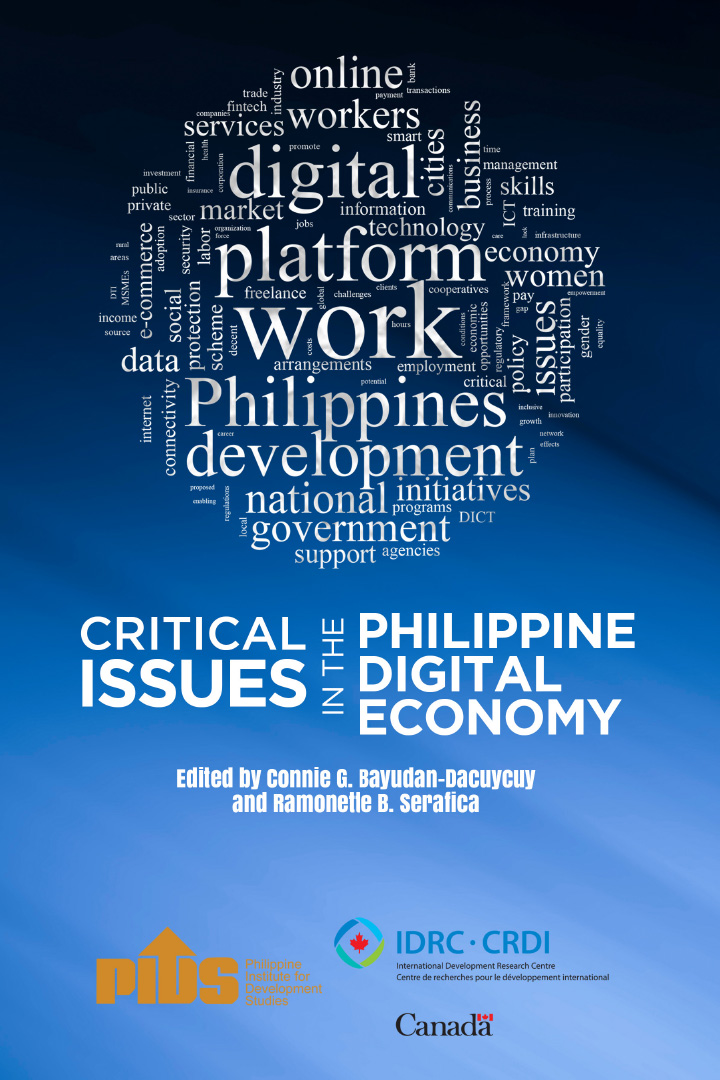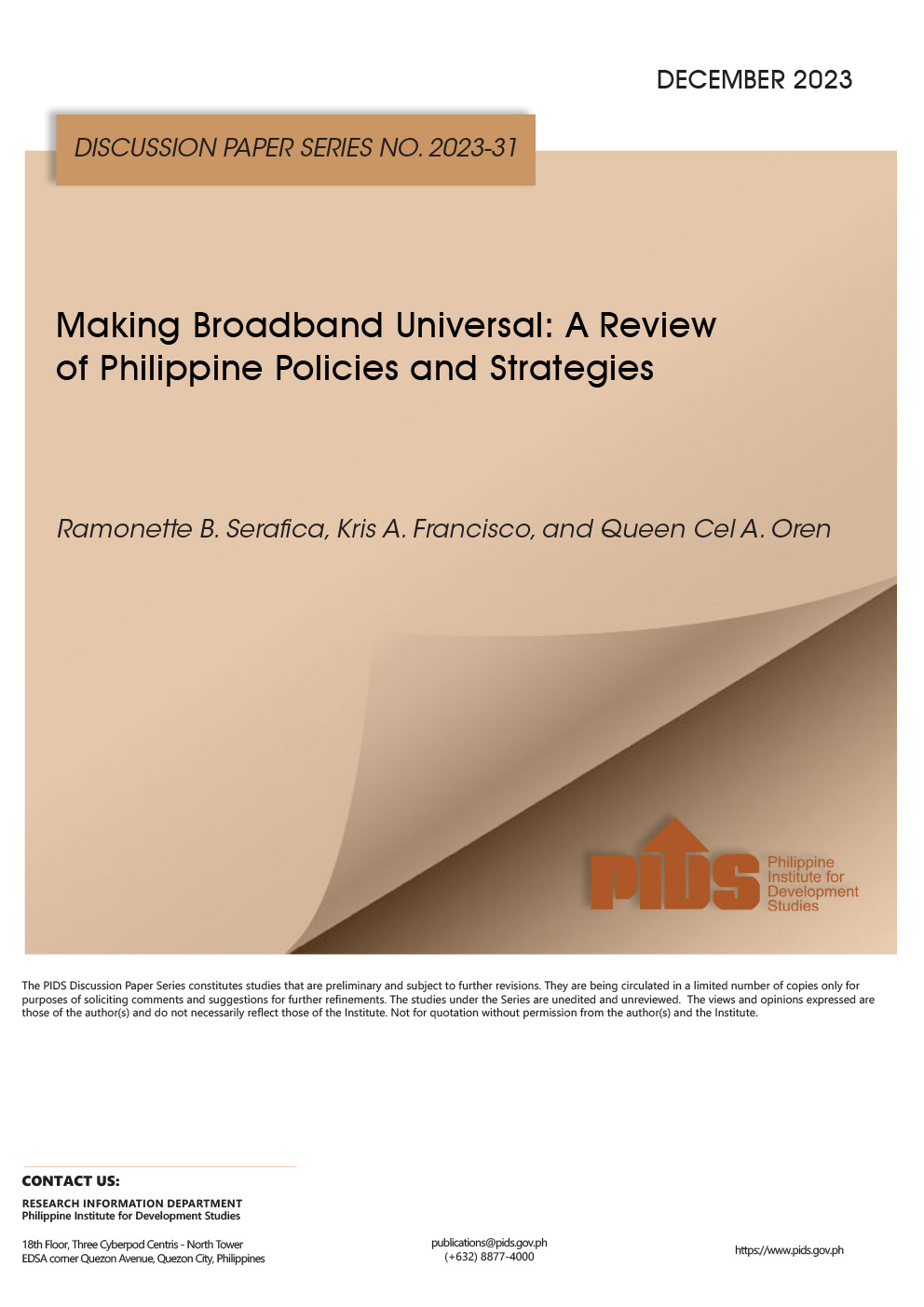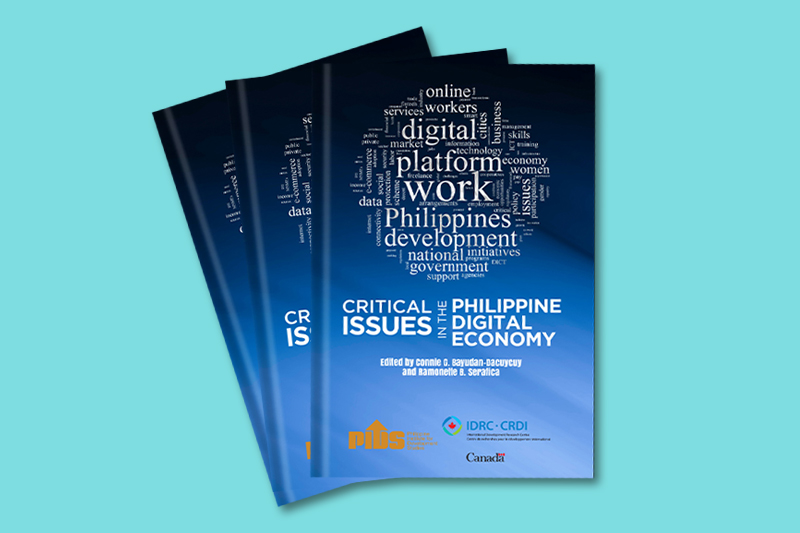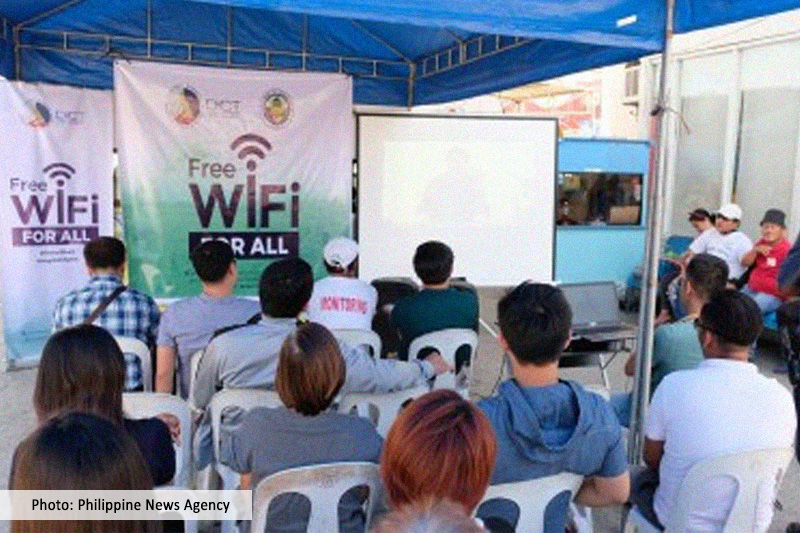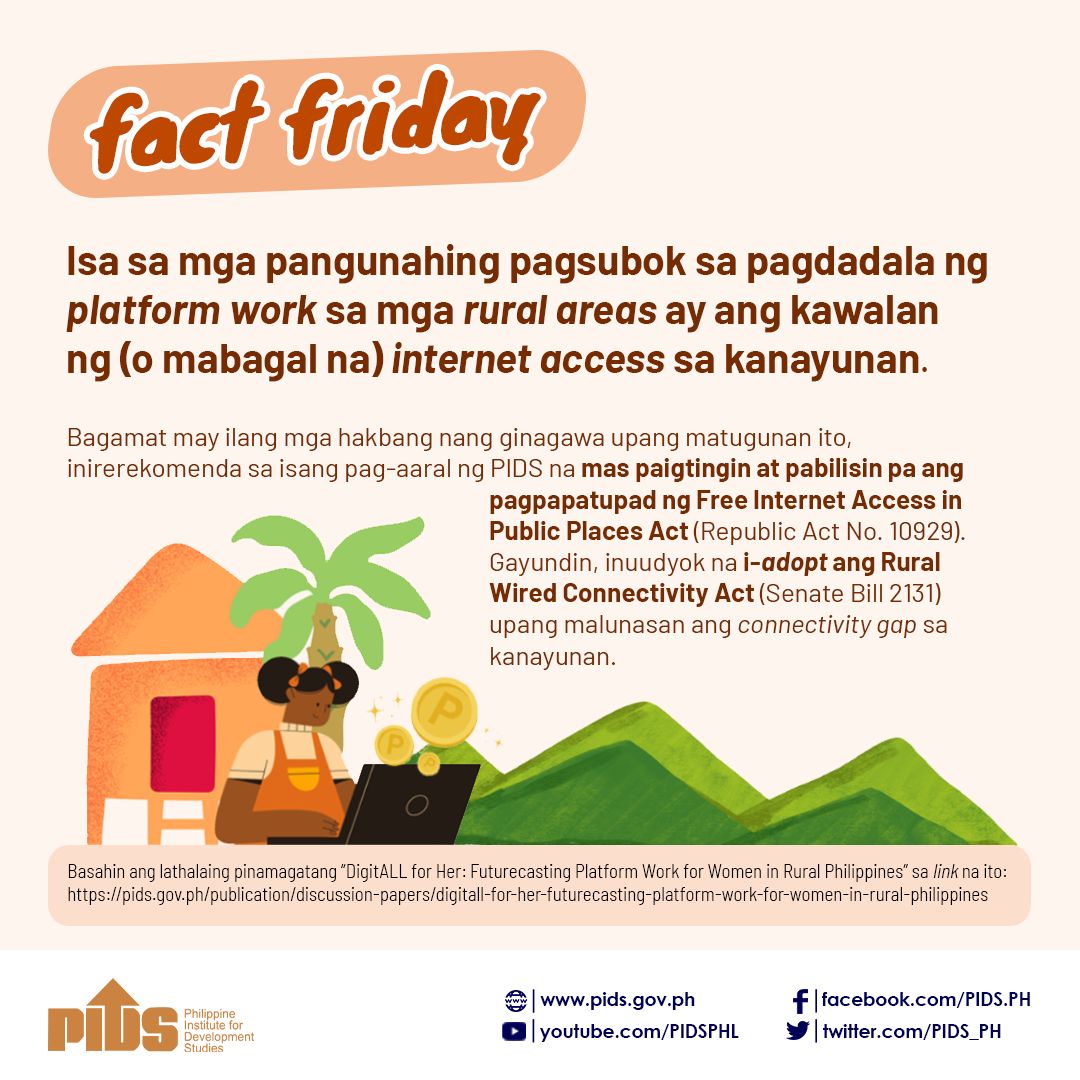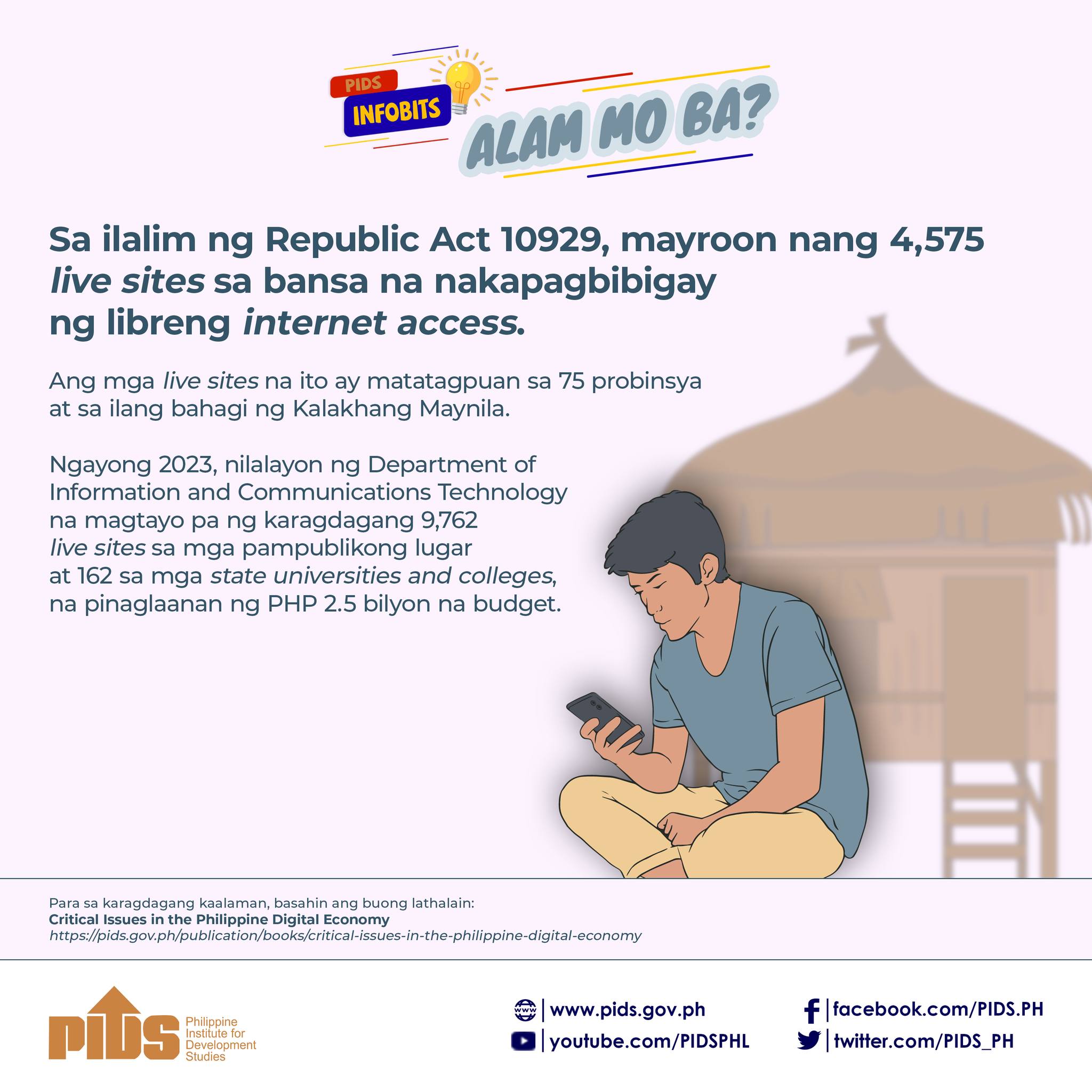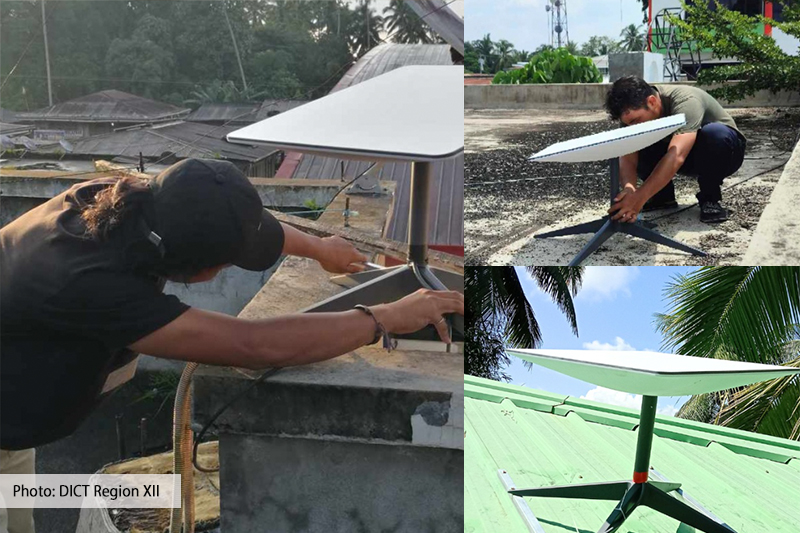
Establishing a multifaceted approach involving market reforms, policy support, public investment, and proactive strategy will enhance broadband infrastructure and universal internet access in the Philippines.
This recommendation was made by experts during a recent webinar organized by the Philippine Institute for Development Studies (PIDS) to celebrate the National Information and Communications Technology (ICT) Month. The event featured the study “Making Broadband Universal: A Review of Philippine Policies and Strategies” authored by PIDS Research Fellows Ramonette B. Serafica and Kris A. Francisco, and Research Specialist Queen Cel A. Oren. The study highlighted the crucial role of broadband adoption and access in advancing digitalization in the Philippines. World Bank Group Senior Digital Development Specialist Naoto Kanehira, and Department of Information and Communications Technology (DICT) Infostructure Management Assistant Secretary Engr. Philip Varilla served as discussants.
In his discussion, Kanehira highlighted the growing digital divide in the Philippines, underscoring the widening gap in internet access between different income groups. He referenced data from the World Bank’s recent policy note, revealing that while households in higher income quintiles have seen significant improvements in broadband access, lower-income households continue to struggle with limited connectivity. This disparity has widened substantially from a 26 percent gap in 2019 to an alarming 42 percent in 2022. “Digital divide must not grow into broader development divides,” he warned.
Kanehira emphasized the crucial role of government intervention in ensuring universal internet access, akin to the provision of electricity and safe drinking water. He called for comprehensive market reforms and strategic public-private partnerships to enhance competition within the telecommunications sector. Currently, the market is dominated by just two major operators, leading to high prices and low service quality. Kanehira advocated for removing barriers to market entry and investing in infrastructure to support widespread internet access. “The digital divide in the Philippines is a pressing issue that requires immediate and coordinated action,” he stressed.
Kanehira proposed a higher annual budget for the DICT to achieve digital inclusivity. He noted that while private sector efforts have been substantial, public policies and investments must address and fill in their limitations.
DICT Infostructure Management Assistant Secretary Engr. Philip Varilla echoed this sentiment, emphasizing the importance of public-private partnerships and efficient spectrum management to encourage deployment. He advocated for clear spectrum pricing policies to promote the efficient use of resources and facilitate the rollout of more broadband infrastructure.
Asec. Varilla presented a complementary analysis, detailing the current state of broadband infrastructure and future strategies for improvement. He agreed with the study’s findings that broadband can significantly boost productivity and economic growth and advocated for an updated study to measure this impact accurately. “In rural areas, it will be difficult to aim for universal service because of cost and affordability issues. A phased approach from universal access to universal service should be pursued,” he noted.
Asec. Varilla reiterated the importance of collaboration between the government and private sectors to expand connectivity, particularly in rural areas. He also cited the potential cost savings from infrastructure sharing as mentioned by the authors in their study. “Infrastructure sharing, both passive and active, can reduce costs up to seventy percent,” he noted. He mentioned ongoing discussions with the Department of Public Works and Highways (DPWH) to develop guidelines for cross-sector infrastructure sharing, including electricity, telecommunications, water, and sewerage systems.
The discussions point to the need to bridge the digital divide and propel the nation towards comprehensive digital inclusion. Costs must be decreased, networks must be expanded, and regulatory burdens must be reduced to accelerate network rollout and ensure that ICT and broadband services reach even the most remote areas.
Watch the recording of the webinar at bit.ly/pidslive060624.###

